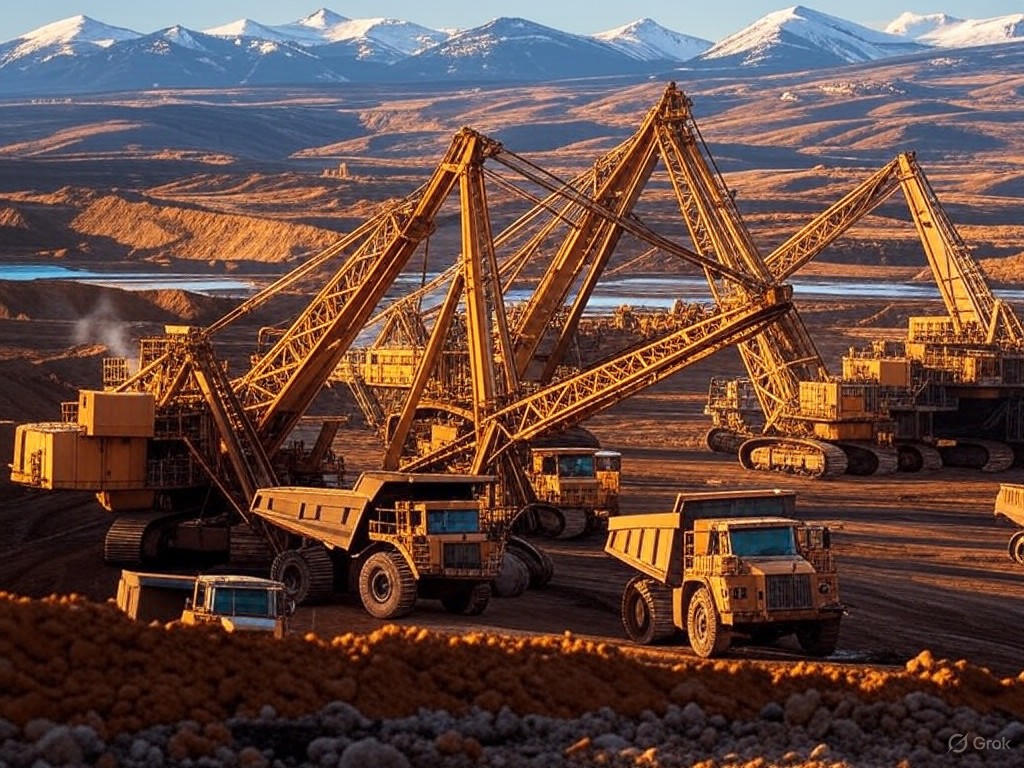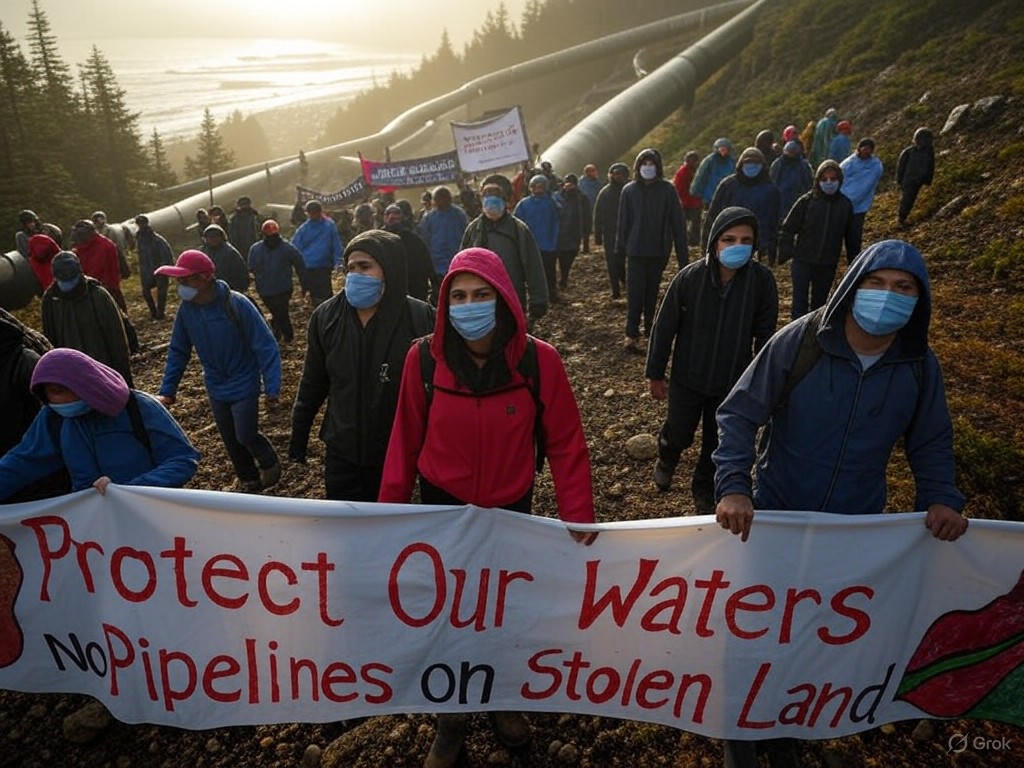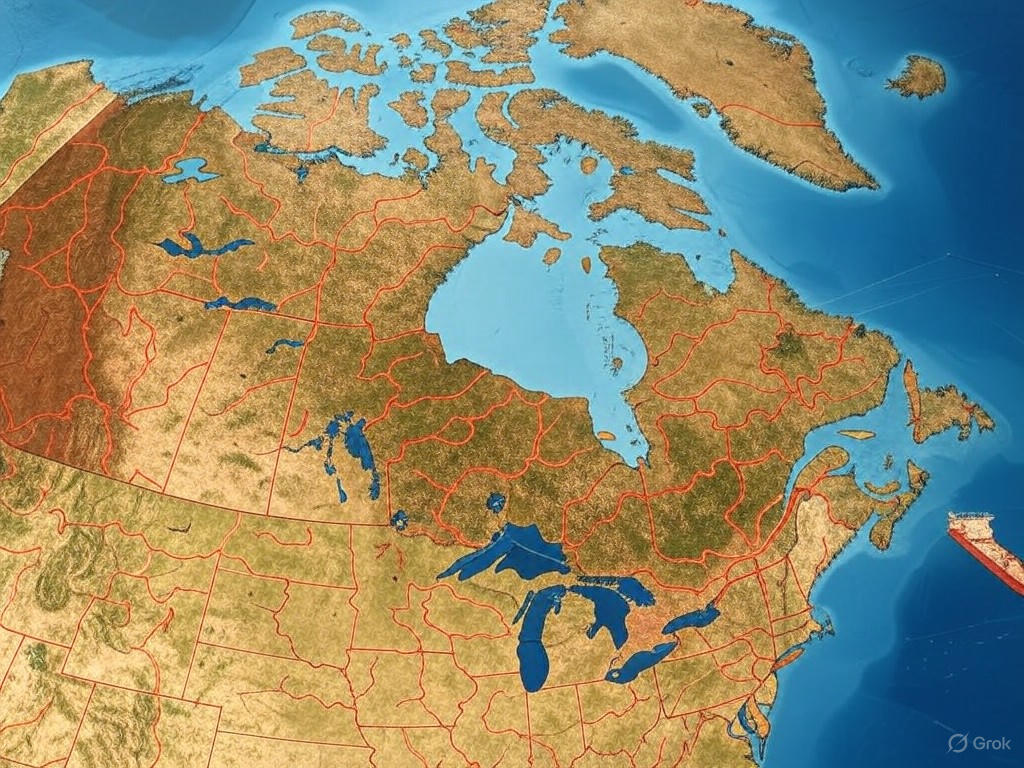Alberta’s Oil Push: BC’s Environmental Resistance
In the vast expanse of Canada's western provinces, where rugged mountains meet endless prairies, a quiet but fierce contention simmers over the future of energy. Alberta, with its lifeblood in the form of Alberta oil sands, seeks to expand its economic horizons through pipelines and trade, while British Columbia prioritizes environmental stewardship, wary of the ecological toll. This clash not only underscores a regional divide but also mirrors the global tug-of-war between reliable energy sources and the imperative of climate responsibility. As a proponent of practical, market-driven solutions, I argue that resolving these tensions requires a balanced approach that honors free-market principles and limited government intervention, allowing innovation to bridge the gap between prosperity and sustainability.
At its core, this dispute reflects deeper philosophical divides about resource management and economic self-reliance. Alberta's oil industry, a cornerstone of its economy, has long fueled Canada's energy exports, generating jobs and revenue that ripple through the nation. Yet, British Columbia's environmental regulations, aimed at protecting its pristine coastlines and watersheds, often act as barriers to these ambitions. The result is a standoff that hampers trade and highlights the need for pragmatic dialogue over ideological entrenchment.
The Roots of the Conflict: Pipelines and Provincial Priorities
The tension between Alberta and British Columbia is most visibly embodied in the debate over pipelines, which serve as arteries for Alberta oil to reach global markets. For Alberta, projects like the expanded Trans Mountain pipeline represent not just economic necessity but a affirmation of traditional values—hard work, resourcefulness, and the prudent use of natural endowments. The province's oil sands, stretching across northern regions, have historically driven Canada's energy independence, supporting families and communities in an era of global uncertainty.

An aerial view of Alberta's oil sands operations, showcasing the scale of extraction that sustains thousands of jobs and underscores the province's economic resilience.
In contrast, British Columbia views these expansions through the lens of environmental prudence. The province's government has imposed stringent regulations on pipelines, citing risks to local ecosystems, including potential oil spills in sensitive marine environments. This stance is rooted in a broader commitment to conservation, reflecting a cautious approach to development that prioritizes long-term ecological health. However, critics argue that such measures can stifle trade and economic growth, as seen in the delays and legal battles surrounding pipeline approvals Wall Street Journal on Canadian energy pipelines. These conflicts not only strain interprovincial relations but also echo global debates, where nations grapple with the trade-offs between fossil fuels and renewable transitions.
From a center-right perspective, the emphasis should be on free-market mechanisms to navigate these challenges. Rather than expansive government mandates, policies that encourage private innovation—such as tax incentives for cleaner extraction technologies—could foster solutions that align economic imperatives with environmental realities. Alberta's oil sector, for instance, has already seen advancements in carbon capture and storage, demonstrating how market-driven research can reduce emissions without heavy-handed regulation.
Analyzing the Economic and Environmental Stakes
Delving deeper, the Alberta-BC energy tensions reveal a microcosm of the global energy versus climate debate. Alberta's economy relies heavily on oil exports, which accounted for over 20% of Canada's total goods exports in recent years, according to industry reports Global Energy Institute on Canadian oil exports. This dependency underscores the role of free markets in sustaining livelihoods; restrictions on pipelines could lead to job losses and reduced competitiveness, potentially driving investment to less regulated regions like the United States. Meanwhile, British Columbia's environmental policies, including carbon taxes and protected areas, aim to mitigate the impacts of climate change, such as rising sea levels and biodiversity loss.
Yet, this environmental focus must be weighed against practical realities. Overzealous regulations risk undermining trade flows, as pipelines are essential for transporting Alberta oil to ports in BC for export to Asia and beyond. The economic fallout from stalled projects, like the ongoing disputes over the Coastal GasLink pipeline, illustrates how provincial barriers can inflate costs and delay benefits for all Canadians Financial Times on BC-Alberta energy trade. In a global context, these frictions parallel tensions in the U.S., where shale oil production clashes with state-level green initiatives, reminding us that energy security remains a cornerstone of national stability.

Demonstrators gather along a proposed pipeline route in British Columbia, highlighting the grassroots push for environmental safeguards amid economic pressures.
To maintain balance, it's crucial to examine evidence from both sides. Data from environmental studies show that oil spills from pipelines can have devastating effects on wildlife and water quality, as documented in reports from credible sources Natural Resources Canada on pipeline safety. Conversely, economic analyses indicate that Alberta's oil sector supports over 200,000 jobs, with ripple effects in manufacturing and services Petroleum Economist on Alberta's economic impact. A thoughtful approach would leverage these insights to promote voluntary industry standards, where companies invest in safer technologies driven by market demand rather than mandates.
In this narrative, the story of Alberta and British Columbia is one of shared heritage and divergent paths. Both provinces embody Canada's pioneering spirit—Alberta through its resource extraction and BC through its stewardship of natural beauty. By fostering dialogue that emphasizes practical solutions, such as public-private partnerships for infrastructure upgrades, we can avoid the pitfalls of excessive government intervention.
Toward Practical Resolutions: A Path Forward
As we conclude, the Alberta-BC energy tensions demand a resolution that upholds free-market principles while addressing legitimate environmental concerns. Limited government involvement, focused on facilitating trade rather than dictating outcomes, could unlock innovations like advanced pipeline monitoring systems or alternative energy corridors. For instance, encouraging Alberta's oil companies to partner with BC-based clean-tech firms might create hybrid solutions that reduce environmental risks without sacrificing economic vitality.

A detailed map of energy trade routes across Canada, illustrating the interconnected pathways that link Alberta's resources to British Columbia's ports and global markets.
Ultimately, this debate reflects timeless values of self-reliance and stewardship, echoing the deliberate wisdom of thinkers who advocated for harmony between human endeavor and the natural world. By prioritizing market-based incentives—such as streamlined permitting processes and incentives for low-emission technologies—Canada can navigate these challenges without succumbing to divisive rhetoric. In doing so, we not only resolve regional disputes but also contribute to a global energy landscape that balances tradition with progress, ensuring prosperity for generations to come.

